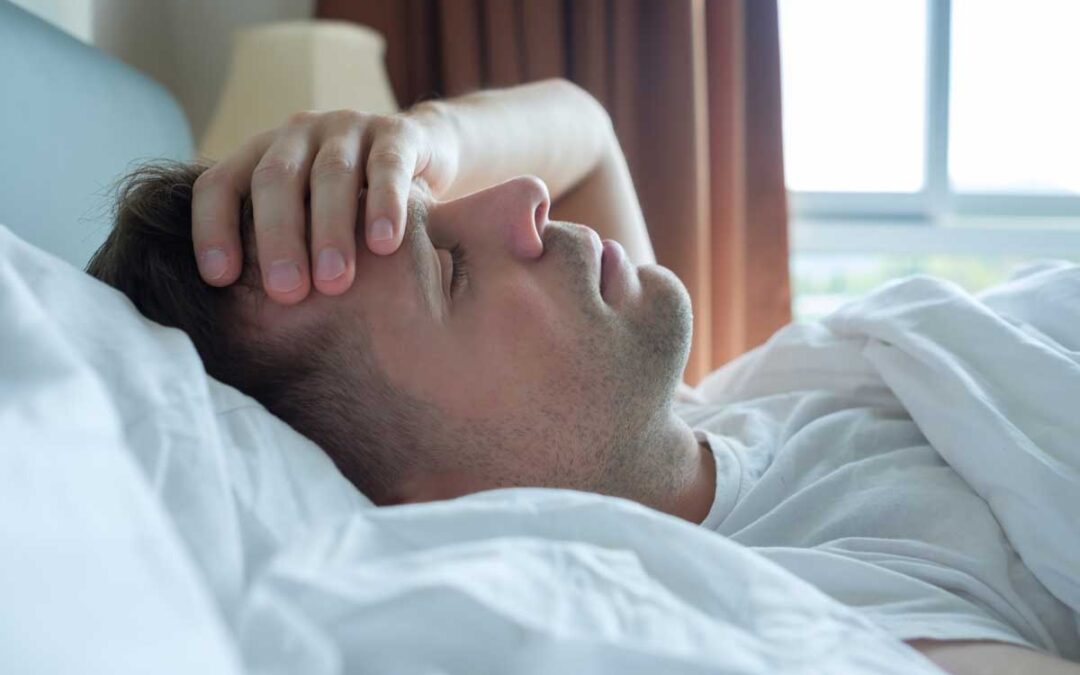A night of lost sleep is pretty common and may be due to stress or too much screen time. However, it’s not normal to have trouble falling and staying asleep most nights. If that’s the case, it may be time to see a doctor.
Sleep disorders can affect people of all ages. The American Family Physician reports that up to 50% of children will experience these issues at some point. Sleepwalking, nightmares, restless leg syndrome, and obstructive sleep apnea are just a few to mention.
The same source notes that sleep problems may lead to mood swings and daytime sleepiness. In the long run, they may affect children’s behavior and learning abilities.
Insomnia and other sleep disorders are even more common in adults. These conditions disturb your normal sleep patterns, causing difficulty breathing, fatigue, or unusual behaviors.
If left unaddressed, sleep disorders can affect your ability to function normally. You may find it difficult to wake up in the morning, stay focused at work, and think clearly.
Interested to find out more? Let’s take a closer look at the most common sleep disorders and how they affect your health.
Insomnia
Acute insomnia affects about one in four Americans each year. About one-quarter of sufferers develop chronic insomnia and other complications.
This condition makes it difficult to fall and stay asleep. Its symptoms vary from one person to another and may include:
- Frequent nighttime awakenings
- Waking up too early
- Daytime sleepiness and fatigue
- Irritability
- Tiredness
- Difficulty focusing on tasks
Watching TV late before bedtime, eating late at night, and other habits can worsen insomnia. Its symptoms may also present when you’re traveling.
In some cases, this sleep disorder may be due to depression, diabetes, or chronic pain.
Parasomnias
Has someone in your family told you that you’re walking or eating in a sleep-like state? Do you wake up crying or screaming for no obvious reason? These are potential symptoms of parasomnias.
Sleep eating, sleepwalking, night terrors, and other parasomnias cause abnormal behaviors during sleep. Although they are more common in children, they can affect adults as well.
An earlier study reports that extreme tiredness, shift work, and mental disorders are common causes of parasomnias. Substance abuse and certain diseases may contribute to these issues too.
Parasomnias can lead to injuries, risky behaviors, weight gain, fatigue, seizures, and more. They may also increase your risk of household accidents, especially if you live alone.
Restless Legs Syndrome
Restless legs syndrome is one of the most common types of sleep disorders. Its symptoms include tingling, burnings, and aches in the legs and occur mostly at night. Some people may also experience itching, creeping, crawling, and other unusual sensations.
Researchers can’t tell the exact cause of restless legs syndrome. Some say that it may be due to iron deficiency. Others believe that it may result from dopamine imbalances in the brain.
While this condition isn’t life-threatening, it can affect your health in the long run. In severe cases, it may lead to depression, fatigue, and diminished mental function.
Obstructive Sleep Apnea
About 22% of men and 17% of women suffer from obstructive sleep apnea. The risk of developing this condition increases with age. Smoking, obesity, alcohol use, and other factors may further worsen its symptoms.
This disorder causes your breathing to stop for brief periods during sleep. Its primary symptoms include:
- Nighttime sweating
- Awakening with a sore throat or dry mouth
- Loud snoring
- Daytime drowsiness and fatigue
- Mood swings
- Diminished mental focus
- Waking up choking or gasping for air
Obstructive sleep apnea affects the throat muscles. Its symptoms occur repeatedly during sleep, leading to unexplained fatigue and tiredness.
Without proper treatment, this condition may increase your risk of heart disease, stroke, and glaucoma.
Sleep Paralysis
Do you ever wake up at night and realize that you’re unable to speak or move? That’s a classic symptom of sleep paralysis. This disorder may also cause hallucinations, imagined sounds, and intense fear.
During sleep paralysis, you may feel like someone is sitting on your chest. You may also hear zapping, hissing, or humming noises, as well as roars and whispers. These symptoms may occur during sleep or as you’re waking up.
Clinical evidence reports that nearly 30% of students and more than one-third of psychiatric patients experience episodes of sleep paralysis. About 7.6% of the general population has this problem.
The exact cause of sleep paralysis is unknown.
Scientists believe that sleep deprivation, substance abuse, and mental disorders may contribute to this problem. Other sleep disorders, such as narcolepsy, play a role too.
What Can You Do About It?
Sleep disorders can be frightening at the least. Imagine waking up at night and gasping for air or feeling like someone is trying to hurt you! Not to mention the tiredness that follows a bad night’s sleep.
The best thing you can do is to reach out to a sleep doctor. In the meantime, try changing your diet and lifestyle habits.
Cutting back on sugar and trans fats is a good starting point. Fill up on slow-digesting protein for dinner and refrain from eating before bedtime. Cottage cheese, casein shakes, Greek yogurt, and other high-protein foods are all excellent choices.
Reach for a low-carb, high-protein bar, or other small snacks if you’re feeling hungry before bedtime. Avoid fatty foods and heavy meals at night. Schedule your workouts in the morning or afternoon rather than late in the evening.
Note that certain foods contain tryptophan, an amino acid that converts to melatonin in your body. Melatonin is a hormone that regulates the sleep-wake cycle, supports immune function, and protects your brain.
Beef, turkey, salmon, eggs, milk, and dairy products are all an excellent source of tryptophan. Consider drinking a cup of milk before bedtime to boost melatonin production and enjoy a good night’s sleep.
Better Sleep, Better Health
Sleep deprivation does more than just make you feel tired. It can also affect your metabolism, immune function, and heart health. Over time, it may have devastating effects on mental function and work performance.
Don’t wait until it’s too late! If left unaddressed, sleep disorders can take a toll on your health and affect how you look and feel. Contact us today to learn more about our products.

